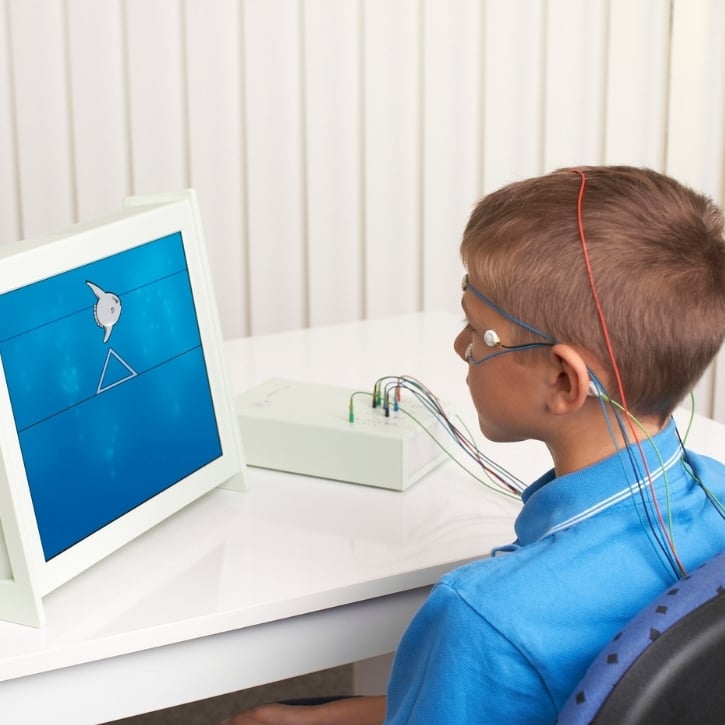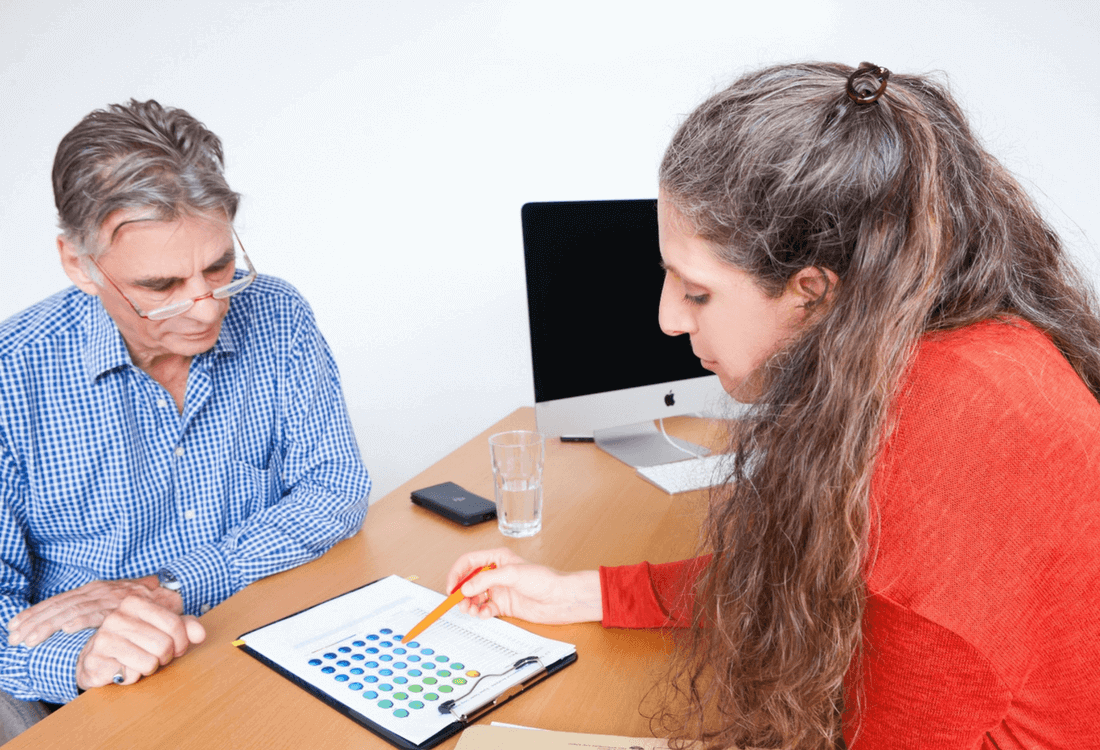ADHD Treatment
Find out how children and adults with ADHD can be treated with the latest advances in neuroscience and sleep hygiene.

Straight to:
Attention-deficient / hyperactivity disorder (ADHD) affects an estimated 129 million children globally. Left untreated, ADHD can carry over into adulthood. In the United States alone, the social and economic cost of ADHD is estimated to be around US$12 billion annually. This does not take into account the personal economic cost to those affected and their families.
In recent decades, neuroscientists and healthcare professionals have a better understanding of ADHD and its treatment. We are now able to explain and address the underlying causes of ADHD and offer more personalised treatment with sustainable outcomes. Brain training techniques and treatments that pay attention to sleep hygiene have proven effective for children and adults with ADHD and can offer a longer-term solution. This can be particularly beneficial to patients who have not found any benefit from ADHD medications or wish to avoid the side effects.
What is ADHD and who is affected?
ADHD is among the most common neurodevelopmental disorders during childhood, according to the Centers for Disease Control and Prevention (CDC). Children with ADHD might struggle to pay attention or control impulsive behaviours. To the parent or teacher, this can look like they are misbehaving and acting without thinking about the outcome. The child may also exhibit overly active and excitable behaviour.
Whilst ADHD is commonly associated with and diagnosed during childhood, it does not necessarily go away in adulthood. Some studies suggest that only 10% of children with ADHD grow out of it as adults, although opinions vary.
Diagnosing ADHD is not always easy as some of the behaviours associated with the condition are normal childhood behaviours. It takes more than one single test to rule out other conditions with similar symptoms. Currently, males are three times more likely to be diagnosed with ADHD, compared to females.
ADHD symptoms
Here are common symptoms of ADHD in children and adults:
ADHD treatment methods
ADHD Medications
Medication is a common component in ADHD treatment of children aged six or above, as well as psychotherapy.
The purpose of medication is to help children (and adults) manage their symptoms during everyday activities, to help improve concentration in school and more controlled interpersonal behaviour.
ADHD medications fall into two categories – fast-acting stimulants and slower-acting but longer-lasting non-stimulants. Like other medications, ADHD medications have side effects. and may cause mood swings and lead to sleep problems, increased irritability and headaches.
Psychotherapy
Psychotherapy – also known as talk therapy – is another ADHD treatment option. The goal is to help the child learn or encourage positive behaviours whilst eliminating disruptive behaviours. A psychotherapeutic approach often involves close family members to help recognise and work through behaviours. Therapists will highlight coping mechanisms and create strategies that reward the child for positive behaviour.
Psychotherapy avoids the side effects of medication, but it may require several months or years to achieve a desired or sustainable outcome, which becomes expensive over time.
Neurofeedback
Neurofeedback promotes optimal brain regulation by encouraging or inhibiting specific brain activity in real-time. It's a technique that is backed by science. Following neurocare's proven protocols, it helps those striving for peak performance or relief from ADHD or insomnia. Neurofeedback 'trains the brain' to improve a client's cognitive performance or to help regulate certain brain activity. Clients attend sessions at least 2 times per week for anywhere between 30 to 40 sessions. After the learned brain activity has been consolidated, no further sessions are needed.
How Neurofeedback can help ADHD
The human brain is adaptable. Every day, we naturally learn new information and create new neural pathways. This concept is known as neuroplasticity. Neurofeedback takes advantage of your brain’s ability to help retrain it. Simply put, your brain is rewarded for changing its activity to follow a more appropriate pattern. With the help of neurofeedback, we can teach our brains to self-regulate and overcome behavioural conditions like ADHD.

Personalised Programs for ADHD

The underlying causes of inattention, hyperactivity, or sleep difficulties can vary between individuals. Because of this, we create ADHD treatment and therapy programmes that consider your personal brain activity. This is important for treating ADHD in children and adults.
Patients seeking ADHD treatment through a neurocare clinic receive a detailed report of their brain activity and sleep/wake patterns. We generate those through a qualitative electroencephalogram (QEEG) assessment as well as an Actigraphy sleep assessment.
Find a clinic
Seek innovative and personalized treatment at a clinic near you
Frequently Asked Questions about ADHD treatment
-
Yes. Numerous studies have recorded the positive effects of Neurofeedback, mostly to treat symptoms of ADHD, but also in other areas such as Insomnia, cognitive performance, sports performance, anxiety among other trials. Neurofeedback as a therapy for ADHD has been systematically reviewed and tested for more than three decades and most recently breakthrough data has demonstrated its positive effects in large-scale multi-center, placebo controlled trials, which means that the studies have adhered to rigorous scientific testing (e.g. Strehl et al. 2017, Van Doren et al. 2018).
The multi-centre, placebo controlled trial by Dr. Ute Strehl and her team in Germany, in 2017, found that the majority of subjects who underwent Neurofeedback responded in a meaningful way, compared to the control group. Furthermore, these positive results were recorded in 25 sessions, which is a relatively low number of sessions, when compared to clinical practice.
A study recently published in the medical journal European Child & Adolescent Psychiatry shows Neurofeedback to have long-term positive effects in children with ADHD.
-
In this latest study researchers compiled data of more than 500 children with ADHD comparing the results of Neurofeedback with medications and “non-active” (no treatment) conditions. To critically interpret the data, researchers with different views on Neurofeedback were chosen to review the study. They found that Neurofeedback had sustainable effects in the longer term, with positive and large effects observed after 6 months of treatment.
Moreover, the findings show that the effects of Neurofeedback tend to improve over time, with no ongoing therapy sessions needed after the initial therapy program, compared to the group which was still taking medication at 6 month follow-up.
The notion is that once the brain has learnt the new brain activity pattern, it is much like riding a bike, in that we can access this desired behaviour at any stage in the future if this activity has been properly trained and retained (hence the need for frequent sessions, up to roughly 30, maximum 40 sessions).





